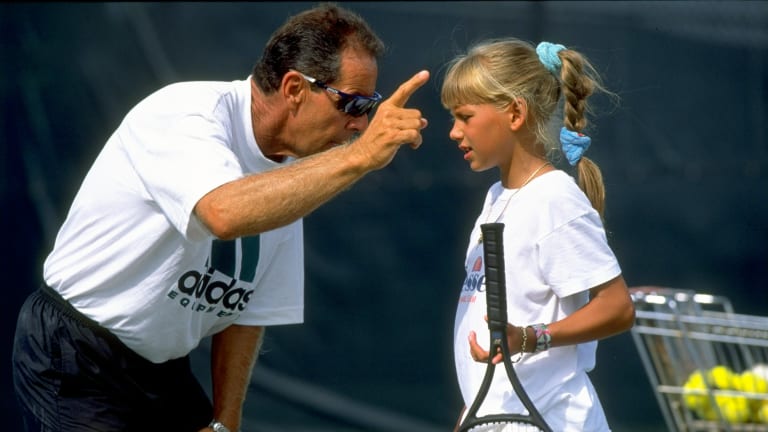Your Game
Nick’s Notes: Bollettieri’s love letter to tennis
By Dec 17, 2022Your Game
Tecnifibre releases special-edition Danille Collins pickleball paddle
By Oct 04, 2025Your Game
Racquet Preview: Solinco unveils Blackout V2
By Sep 24, 2025Your Game
Geared Up: Victoria Mboko is turning heads in all Wilson
By Sep 23, 2025Your Game
Racquet Review: Dunlop CX 200 (18x20) Limited Edition
By Sep 17, 2025Your Game
Racquet Review: Wilson Ultra Pro 99 v5
By Sep 14, 2025Your Game
Yonex goes dark on Percept racquet line
By Aug 28, 2025Your Game
Babolat gives the Pure Strike a makeover with carbon grey cosmetic
By Aug 25, 2025Your Game
Head launches second edition of Speed Legend series
By Aug 24, 2025Your Game
Asics releases its Night Energy Collection
By Aug 23, 2025Nick’s Notes: Bollettieri’s love letter to tennis
The late coach shares his philosophy and love for the game in a series of notes written during his prolific career.
Published Dec 17, 2022
Advertising

"In a child, tennis creates—then reveals their personality, their character and determination to succeed," wrote Bollettieri, pictured here working with a young Anna Kournikova.
© Getty Images